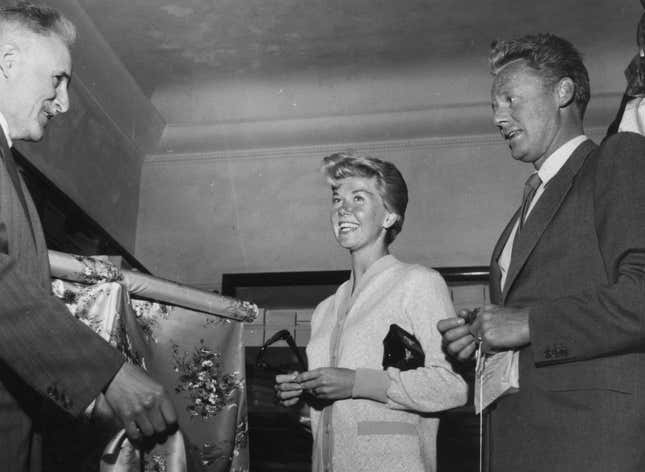Doris Day, 1950s Icon of Fresh-Faced Innocence, Has Died
In Depth

One of the last remaining great Hollywood stars of the midcentury, Doris Day, has died.
Day, who started out as a singer before ascending to her throne as rom com queen of the 1950s and early 1960s, had a schtick, and that schtick was fresh-faced innocence. Via her obituary at the New York Times:
-

-

-

-

-

-

-

-

-

-

-

-

-

-

-

-

-

-

-

-

-

-

-

-

-

-

-

-

-

-

-

-

-

-

-

-

-

-

-

-








































